“Neither a lofty degree of intelligence nor imagination nor both together go to the making of genius. Love, love, love, that is the soul of genius.”
—Wolfgang Amadeus Mozart
Once upon a time the animals decided they must do something heroic to meet the problems of a ‘new world’, so they organised a school. They adopted a training curriculum consisting of running, climbing, swimming and flying. All the animals were required to excel in all the subjects.
The duck was excellent in swimming. But he got only passing grades in flying and was very poor in running. Since he was slow in running, he had to stay after school and also drop swimming in order to practise. This was kept up until his webbed feet were badly worn and he became only average in swimming. But average was acceptable in the school, so nobody worried about that… except the duck.
The rabbit started at the top of the class in running but had a nervous breakdown because he had so much remedial work in swimming.
The squirrel was excellent in climbing but failed flying, so he was held back and forced to repeat the year and made to focus exclusively on flying.
The eagle was a problem child. In the climbing class, he beat all the others to the top of the tree but insisted on using his own way to get there. So he was disciplined severely.
At the end of the year, an abnormal eel that could swim exceeding well and also run, climb and fly a little had the highest average and was valedictorian.
The prairie dogs stayed out of the school completely because the administration would not add digging and burrowing to the curriculum.
The story above is an adaptation from George Reavis’ The Animal School, written in 1940. It is one of my favourite little pieces of writing when it comes to the topic of an individual’s natural talents and abilities, because it highlights—in a sarcastically comical way—a significant problem faced by far too many individuals today. That problem is that we try to ignore our own genius and seek to change what we truly are… to fit someone else’s mould.
Why finding our genius is difficult?

The moral of the above story is that each of us, like the animals, has our own unique genius. Unfortunately there is no shortage of people in our lives telling us how to change ourselves, to improve ourselves, to be something different. Ours is a world of archaic belief systems dedicated to having us all conform to pre-prescribed expectations—of what others think we should fix in order to improve ourselves. The problem with thinking that you need to fix yourself is that it requires the presupposition that you are broken and that’s a horrible place to work from.
Now don’t get me wrong. Self-improvement is a fine thing, and yearning to constantly become a better person is an honourable endeavour. It’s how we go about improving ourselves that I have an issue with.
Like the fish trying to learn to fly, many of us spend our lives attempting to be something we are not. Normally, because someone else thinks we should. Teachers, parents, friends, employers, as well intended as they may be, cajole and harangue us to be more organised, less pedantic, more emotional, less emotional, more outgoing, more reserved and so on.
It’s not a problem with wanting to improve ourselves—it becomes a problem when we want to change that which we are at our core.
Authentic improvement
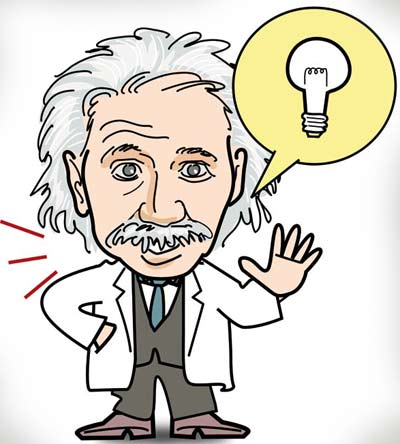 Improving ourselves would imply that we want to stay true to our own natural genius [i.e., the natural talents and gifts we possess], just get better at applying those talents. Improving ourselves is analogous to the duck wanting to be a better duck. This is a wonderful thing to do, and research shows us that this is what the best performers to do.
Improving ourselves would imply that we want to stay true to our own natural genius [i.e., the natural talents and gifts we possess], just get better at applying those talents. Improving ourselves is analogous to the duck wanting to be a better duck. This is a wonderful thing to do, and research shows us that this is what the best performers to do.
Changing ourselves, on the other hand, is about being inauthentic and trying to become more like someone else [i.e., the duck wishing it were a squirrel]. This isn’t a wonderful thing to do and something that the same research shows is more commonly the route chosen by those who do not perform nearly as well, and report much lower levels of satisfaction.
What if you could see your genius?
One of the main reasons we take our genius for granted and seek instead to become something else is because our genius is mostly invisible. If only our unique individual talents were as visually obvious as the physical traits of the animals in the above fable. If they were, perhaps others and even ourselves, might understand that we already have significant traits and abilities that don’t need to be modified.
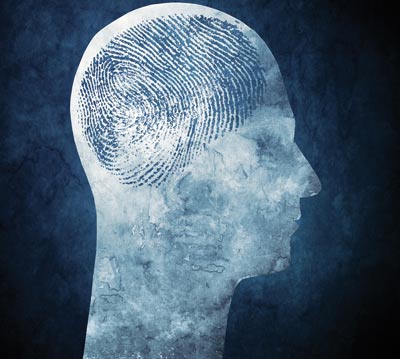
Each of us has a unique brain, which houses an even more unique mind. Yes, we’re all human and the same basic anatomical and biological guidelines apply equally to all of us. But that’s where the similarities end. The configuration of the 100 billion brains cells that constitute our neural networks, our memories, experiences, emotions and a host of other aspects—make each and everyone of us amazingly unique.
Learning and natural talent
Part of this uniqueness is the natural talents and abilities that we each possess, based on our neural networks. For some, the ability to solve complex problems is like second nature. For others, such problem solving is incredibly difficult. Someone else may have a natural ability to be creative, or think conceptually, or be extroverted, introverted, detail-oriented, decisive, empathetic… and a host of other attributes that just come naturally.
This isn’t to say that we can’t learn more about any specific talent, but learning and knowledge constitute only a fraction of the recipe that makes for superior ability. Anyone can learn advanced techniques for problem solving but if that knowledge isn’t added to a natural ability to think conceptually, performance will always be somewhat limited. Yes, I can learn how to speak publicly and be more outgoing, but if my genius is not for being the most extroverted person in the world, no amount of learning is going to change that. If I attempt to force myself, the research shows that I will most likely perform adequately in this effort at best, and feel very stressed and dissatisfied in the end anyway.
Qualities that geniuses have

My company conducted a seven-year scientific research study of 197,000 people across 23 countries, examining their natural cognitive traits and abilities and comparing those to their level of performance and overall satisfaction in life. What we found surprised even me.
The most successful and satisfied people [in any industry, at any level] were those who had achieved two distinct things:
1. Self-awareness
The most successful and satisfied people had the highest level of self-awareness for what their natural gifts and abilities were. They knew very well that they were, for example, naturally outgoing gregarious folks who were comfortable leading a group discussion, or naturally good complex problem solvers who saw issues with clarity that many could not. Conversely, the data revealed a significant negative correlation between this self-awareness and the bottom performers [who were also the least satisfied]. Those who were less successful and felt worse about where they were in life had much lower levels of self-awareness and struggled to clearly define what they were and were not naturally good at doing.
2. Authenticity
Knowing your natural genius is only half of the equation. Authenticity simply means, ‘being true to who you are’ and letting that self-knowledge guide what you do and how you do it. For example, let’s say that based on the way your mind works you’re not good at paying a lot of attention to a ton of detail, but you insist on trying to develop a superior level of talent in this area. That would be inauthentic, and as much as the conventional wisdom on self-improvement in society would argue that you should focus more of your time getting better there, that’s not what the most satisfied people do.
The lesson we took from this research was that we all have natural talents and abilities, based on how our minds are wired and how we think [i.e., our genius]. Those who become very familiar with their genius, and then stay true to it, outperform those who don’t and are much more satisfied in life and feel much better about themselves.
Why don’t we all recognise our genius?
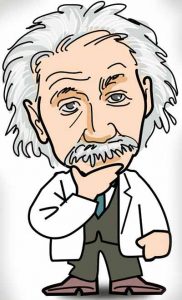 Like I said before, for the most part, it’s because it is invisible. Unlike our physical attributes, our mental talents are hard to see and quantify. Being somewhat invisible, we tend to ignore them, since they are out of sight they are out of mind.
Like I said before, for the most part, it’s because it is invisible. Unlike our physical attributes, our mental talents are hard to see and quantify. Being somewhat invisible, we tend to ignore them, since they are out of sight they are out of mind.
Our culture plays a significant role in understanding why so many people fail to appreciate their own unique genius as well. For most of modern society our value was more for our physical talent than our mental. In the agrarian and industrial ages, most people’s primary value was for the physical work they did, and only a small percentage of the population was valued more for their mental output. In that reality, if someone needed to improve, they did so by changing the way they physically worked.
Today, however, we’re living in what Dr. Peter Drucker called the Knowledge Worker’s economy. The world has flipped wherein 80 per cent of most developed countries’ GDP is generated from service and intellectual output, not physical. But, we spent so much time being conditioned to ‘change ourselves’ to improve that we carry that approach over. The result: when we try to improve ourselves today, we try to change our minds instead of changing our bodies. And this simply doesn’t work.
Our neural networks are pretty much fixed. Sure, they change slowly over years in time, but it’s simply no more possible to change the way our minds are wired than it is to change the physical attributes of the duck.
The bigger question is why should we?
Each of us can be a genius at something
The trick is in learning what! Instead of ignoring our genius and desiring to be something or someone else, the research proved that the most satisfied people revel in their genius. They don’t desire to be something else. They not only embrace what they excel at but, and more importantly, also what they are not good at. Instead of focussing on their weaknesses and seeking to change that which they are, they hold their weaknesses up like a badge and proudly proclaim, “I suck at that—and that’s OK!”
Just ask yourself: do you know anyone who is great at everything? If you consider even the most successful people you may know, they all suck at something. Einstein needed help with the actual mathematical formulas required to prove his theoretical hypothesis. Bill Gates and Steve Jobs, while geniuses in creativity and business, lacked people skills. Study the greatest figures from history and you will always find a long list of genius abilities, balanced by an equally strong list of things they weren’t any good at as well.
It’s not perfection that drives success
We need to let go of our penchant for idealising the perfect person, and ignoring our natural gifts in favour of focussing mostly on fixing what’s wrong with us. No one is perfect and perfection is not what drove all of the successful people we could name.
What drove such success was a focus on maximising existing talents and minimising dependence on non-talents. This is what the research discovered. Every one of the most successful people studied could easily list a library of things they knew they stunk at doing. Here’s a summary:
Self-awareness
The first key to their success, mind you, was that they knew this about themselves. They had a very high sense of self-awareness.
Focus only on strengths
The second key to their success was that they accepted this about themselves. Instead of investing all of their time wishing they were something else, they acknowledged that they couldn’t be great at everything, and focused all of their efforts on figuring out how to utilise the wonderful talents they did possess.
Self-acceptance
Lastly, it seems that in so doing, they achieved a very high level of satisfaction—not so much in life performance as much as in being satisfied with who they were. Their learning to accept the fact that each of us would have to suck at something in order to excel somewhere else, delivered to them a sense of self-acceptance that brought with it peace, comfort and personal satisfaction that they were okay just the way they were.
Your genius is inbuilt
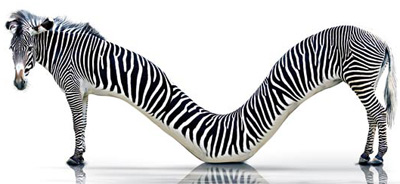
Dr. Marshall Goldsmith was one of those hyper-successful people studied in the research. Marshall personally coaches many of the Fortune 500 CEOs, and is considered one of the top 50 business thought leaders of our decade. He summed the entire concept up in a very succinct manner when he said, “There are a lot of things I suck at. I just make sure I don’t have to do them to be successful.”
Part of Marshall’s genius is complex thinking, and taking complex concepts and distilling them down to a very easily understood level. This makes him a great teacher and executive coach. Not everyone can see the simple truth in vastly complicated piles of data like Marshall. Conversely, Marshall admits that he has a weakness when it comes to being empathetic. It is not that he isn’t a caring person, but it’s just not one of his genius talents. Instead of trying to become much better at connecting with people on an emotional level, Marshall uses this weakness to his advantage by allowing it to help him have blunt but truthful discussions with the CEOs he coaches. For someone with an overabundance of empathy, sitting down and telling someone that they aren’t very good at something, is part of the problem at work, or that their employees don’t like them, could be a very hard thing to do. Marshall turns a potential weakness into strength by being able to have those discussions that need to take place in an unemotional way—rationally, logically and effectively.
Michael Lorelli was another genius performer we studied in the research. As a former President of PepsiCo and Pizza Hut, Michael recalls a time where he spent a lot of energy trying to fix himself and ignoring his own genius. The opposite of Marshall, Michael does not have a natural gift for complex problem solving, methodical strategic thinking or systematic structured thinking. Michael is a gunslinger. His genius is for being hyper-practical, rapid decision-making and thinking on his feet. Early on in his career, he tried to become that strategic, detail-oriented, careful planner. After years of wasted effort, little results and a lot of frustration, he eventually learned to leave his weaknesses behind and focus instead on maximising what he was naturally good at [i.e., his genius]. He delegates the details and minutia of the plan to those around him, and openly admits [almost proudly] that he sucks in a wide variety of areas. This shift to being strength-driven allowed him to not only achieve the success he did, but do so while being much more satisfied and less stressed.
These are but a few examples of the people we studied and they all shared the same common belief—that it was useless to try and fix themselves, impossible to have no weaknesses, and okay to be flawed. Instead of fighting that reality, they spent all of their time figuring out what they were good at and how to make their success dependent on that instead. It was once said, “Stop trying to put in what God left out and instead work with what he put in.” If you can truly achieve this mindset, you will be surprised how good it feels, and how much more successful you will be.
So how can you learn what your genius is for?

There are several things that you need to do in order to not only identify your own genius, but also be able to maximise it:
» Ask yourself who’s in charge
One of the more common reasons we find people not living in their genius is because they have a dependence on the world to tell them who to be, where to go, what to do. The geniuses we studied don’t do this—at all. They assume full responsibility for their own place in life, and refuse to outsource their best to anyone else. A commonly held belief among these geniuses was, “You get what you accept.” In other words, if you’re not happy with your life, don’t accept it. They don’t blame circumstances, nor do they let them dictate their happiness and success. Victims are people who allow circumstance to define them. Victors are those who define themselves, regardless of circumstance.
» Develop your Self-Awareness

Once you decide to take charge of your own destiny it’s time to take inventory of what you are—and what you are not—good at. There are a couple of good ways to do this.
Self-examination
Simply stopping to think about what you love to do is actually a great way to start defining your genius. One of the signs that you’re naturally great at something is that you love to do it. When we use our natural cognitive talents it seems somewhat effortless. It literally just ‘comes naturally’. The duck didn’t have to go to school to learn to swim, and doesn’t likely give it any thought when he does it. Likewise, identifying your genius can be as simple as writing down a list of all the things you love to do, and do naturally well.
Outside examination
Asking those around you what they think you’re great at is the next way to add to that list of talents you started. Talk to those who know you the best in a variety of roles [e.g. friends, co-workers, family]. Their somewhat more objective opinions can help you expand the list, often adding things to it you missed out on, and sometimes even cancelling out the things you thought you were good at.
Validated examination
Consider taking one of the countless psychometric profiles on the Internet today. A scientifically validated assessment can be a surprisingly accurate way to define your natural talents, preferences, strengths and weaknesses. Whichever one you choose, be sure to select one that lists not only your strengths, but weaknesses too! Knowing what you are not as good at is just as important as knowing what you are great at. I would recommend one of the following to start:
– The Genius profile [www.whatsyourgenius.com]
– Myers Briggs Type Indicator [www.humanmetrics.com]
» Accept Yourself
Now, here comes perhaps one of the more difficult things to do in this whole process. Before you can truly achieve the levels of performance and satisfaction that the geniuses in our study did, you have to accept yourself. This means embracing your list of weaknesses, not staring at it wondering how you can fix those things and get that side of your list down to zero. Sincerely accepting yourself in this manner means being fine with the things on your list and no longer coming from the perspective that you are broken. The animals in the opener weren’t broken, were they? Why don’t you deserve the same level of self-acceptance? My prediction is that once you become comfortable with this, you will find a certain joy in proclaiming to the world, “I SUCK at this.”
» Become authentic
Once you have a good list of strengths and weaknesses, your final task is to become more authentic. Start by comparing your list of strengths and weaknesses to your current roles in life. You want to ask yourself the following two questions:
- How much does my current role leverage and make use of these strengths?
- How much does my current role depend on my weaknesses?
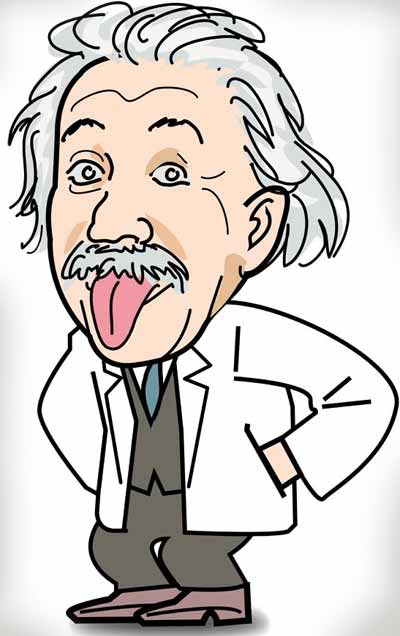 Authenticity means being true to who you are…being real. Filling a role in a way that finds much of your success dependent on your weaknesses is being inauthentic. Instead of trying to fix your weaknesses, you just need to figure out how to make your success no longer depend on you being great at those things you suck at. Get it?
Authenticity means being true to who you are…being real. Filling a role in a way that finds much of your success dependent on your weaknesses is being inauthentic. Instead of trying to fix your weaknesses, you just need to figure out how to make your success no longer depend on you being great at those things you suck at. Get it?
Hopefully your fit between your genius and current role isn’t too far off. Seek to maximise your dependence on your strengths and minimise dependence on weaknesses. Instead of fixing yourself, fix your job.
Granted, sometimes you can’t do much about it, but the cold harsh truth is that if you’re in a terribly inauthentic role you will never be able to fix yourself and become a great fit! Ultimate success and satisfaction in life will only come when you find a role that is a natural fit for your genius. The geniuses out there are those who refused to accept dissatisfaction and settle for anything less than the self-respect they demanded. Instead of modifying themselves to fit a bad job, they left those jobs that weren’t a great fit.
Being a genius isn’t about being super intelligent. It’s about learning to love all your warts and flaws. It is about embracing all that is wrong with you and finding all that is right with you. When you do this, you too can bring out your genius.
 Spot an error in this article? A typo maybe? Or an incorrect source? Let us know!
Spot an error in this article? A typo maybe? Or an incorrect source? Let us know!
